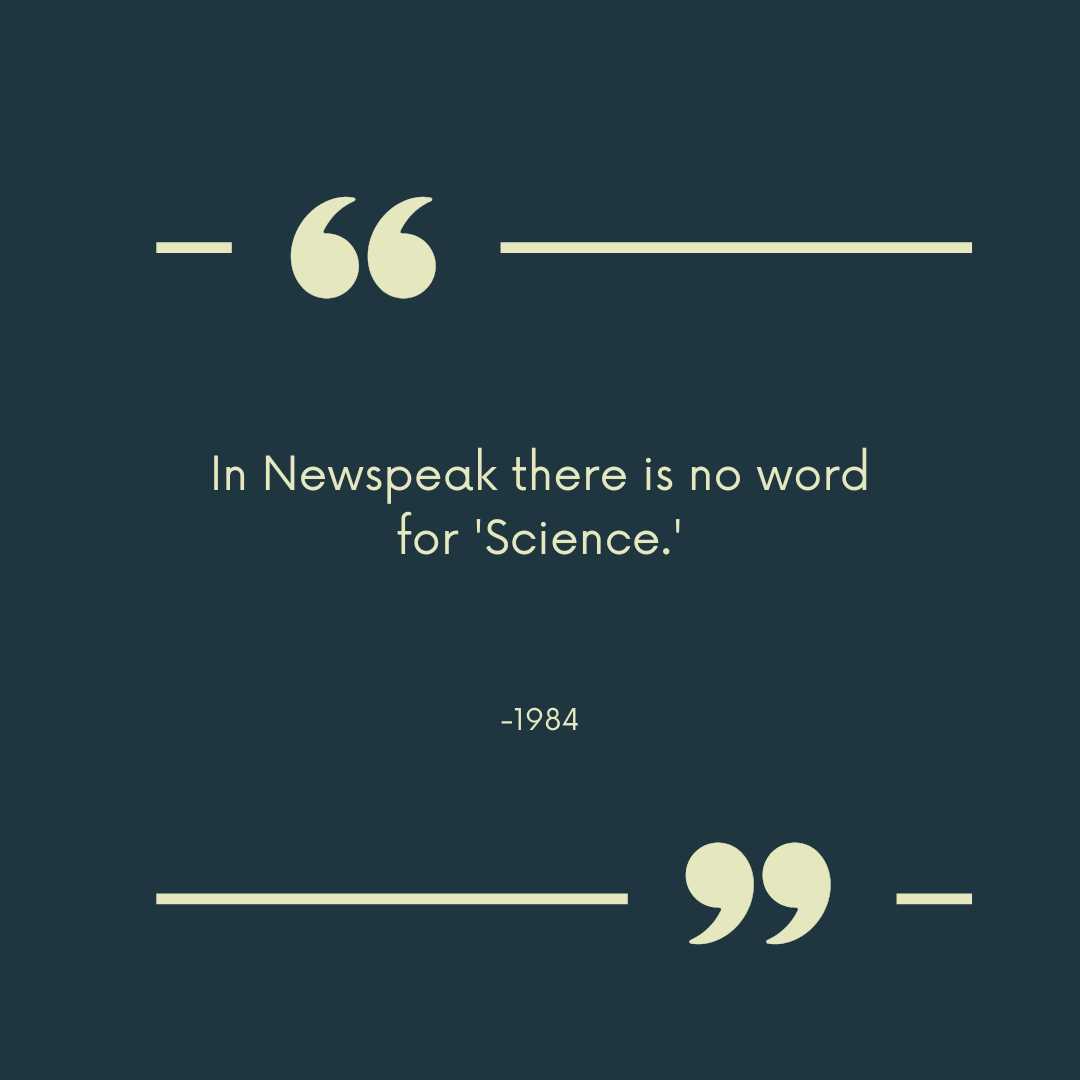
The world of George Orwell’s dystopian vision offers profound insights into the nature of power, control, and individuality. Delving into the core ideas of this novel encourages a deeper understanding of its complex themes and the human experience under authoritarian rule. In this section, we will explore a series of critical topics that challenge readers to reflect on their interpretations of the story’s central messages.
By engaging with these thought-provoking prompts, readers are invited to analyze the dynamics between the protagonist and the oppressive regime he confronts. The central issues of surveillance, language manipulation, and societal conformity provide fertile ground for exploring how individual freedom can be suppressed in a tightly controlled world. Each of these discussions serves to illuminate the novel’s chilling relevance to contemporary concerns.
Through focused examination, we aim to encourage a deeper engagement with the text, prompting readers to question not only the actions and beliefs of the characters but also the broader implications for society. Whether discussing the psychological impact of propaganda or the moral dilemmas of resistance, these explorations seek to uncover the layers of meaning woven throughout the narrative.
1984 Thought-Provoking Prompts and Responses
Engaging with the key themes of George Orwell’s novel requires a thorough examination of the text’s core elements. In this section, we explore crucial topics that invite critical thinking about the nature of power, freedom, and truth. These prompts challenge readers to reflect on the interactions between the protagonist and the oppressive government he faces, as well as the broader implications for individual agency in a controlled society.
Key Topics for Discussion
These essential topics offer a foundation for deeper analysis, encouraging readers to consider the novel’s societal critique. By exploring the consequences of surveillance, manipulation, and rebellion, participants can uncover how Orwell’s vision mirrors the dangers of unchecked authority.
| Topic | Suggested Discussion Points |
|---|---|
| Surveillance and Control | How does constant monitoring affect individual freedom? In what ways does the Party use technology to control society? |
| The Role of Language | How does the alteration of language serve as a tool for manipulating thought? What is the impact of Newspeak on cognitive freedom? |
| Resistance to Oppression | Is rebellion possible under such a regime? What forms of resistance exist, and how are they punished? |
| The Concept of Truth | How does the Party distort reality? What is the significance of the slogan “War is Peace, Freedom is Slavery, Ignorance is Strength”? |
Reflection and Interpretation
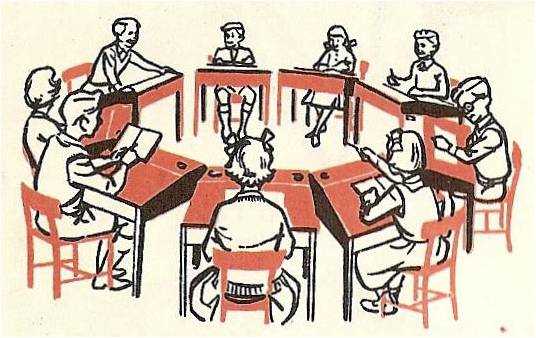
By reflecting on these prompts, readers are encouraged to delve deeper into the novel’s themes and explore how they resonate with current societal structures. The examination of Orwell’s depiction of a totalitarian state provides insights into the potential dangers of unchecked political power and the loss of personal autonomy. These discussions also offer an opportunity to draw parallels between the fictional world of the novel and the real world, examining how elements of surveillance, propaganda, and authority manifest in contemporary society.
Key Themes in George Orwell’s 1984
In George Orwell’s novel, several central ideas emerge that are crucial to understanding the narrative’s impact. These themes delve into the nature of power, control, and human resilience, offering a stark view of a society governed by oppression and manipulation. Orwell uses these themes to examine how totalitarian systems crush individual thought and freedom, leaving citizens unable to distinguish reality from fiction.
Control and Surveillance form a cornerstone of the story’s structure. The constant monitoring of citizens by the state serves not only to maintain order but to strip away personal autonomy. This pervasive surveillance ensures conformity, leaving individuals in a constant state of fear, unable to express themselves or rebel against the regime.
Language as a Tool for Power plays a critical role in the narrative. The creation of Newspeak, a language designed to eliminate words that could provoke independent thought, is a prime example of how control is exerted through communication. By restricting language, the government reduces the ability of the people to think critically, creating a society where subversive ideas are virtually impossible to express.
Truth and Reality are manipulated by the Party to maintain its grip on power. Through constant revision of history, citizens are forced to accept whatever version of events the Party dictates, making it impossible to trust their own memories or perceptions. This distortion of truth raises fundamental questions about the nature of knowledge and the fragility of objective reality.
The theme of Resistance and Rebellion highlights the tension between individual freedom and oppressive control. The protagonist’s internal struggle against the Party reflects the universal human desire for autonomy, even in the face of overwhelming odds. However, Orwell suggests that true resistance may be futile in a society where the mechanisms of control are so deeply entrenched and all-encompassing.
Understanding the Party’s Control Over Reality
The government’s grip on reality in George Orwell’s novel is absolute, manipulating facts and perceptions to maintain power. Through systematic distortion of truth and constant revision of history, the ruling party creates a version of the world that is entirely dictated by its needs. This control over what is accepted as reality strips individuals of their ability to trust their own experiences and understanding of the world around them.
Manipulation of Information is central to the Party’s strategy. By constantly altering historical records and erasing inconvenient facts, the regime ensures that only its narrative survives. This creates a reality in which the past is always mutable, preventing any challenge to the Party’s authority. Citizens are conditioned to accept this shifting version of events, unable to distinguish between truth and falsehood.
Control of Language is another powerful tool used to shape perception. Through the invention of a new language, Newspeak, the Party limits the range of thought and expression. By removing words that could foster rebellion or independent thinking, the government restricts the very ability of people to imagine alternatives to the current regime. Language becomes a key weapon in constructing and maintaining the Party’s version of reality.
Psychological Manipulation is also a core aspect of this control. The constant use of propaganda, such as the mantra “War is Peace, Freedom is Slavery, Ignorance is Strength,” forces citizens to accept contradictions as truth. This mental conditioning creates a society where logic and reason are subverted, and citizens’ beliefs are shaped entirely by the Party’s dictates, regardless of their personal experiences or reasoning.
Ultimately, the Party’s ability to control reality is not just a matter of controlling information, but of controlling the very way people think. Through manipulation of history, language, and psychology, the regime creates a world where nothing is fixed, and everything is subject to its will. This creates a society where individual thought is rendered powerless, leaving only the Party’s constructed reality as the truth.
Insights Into Winston’s Character Development
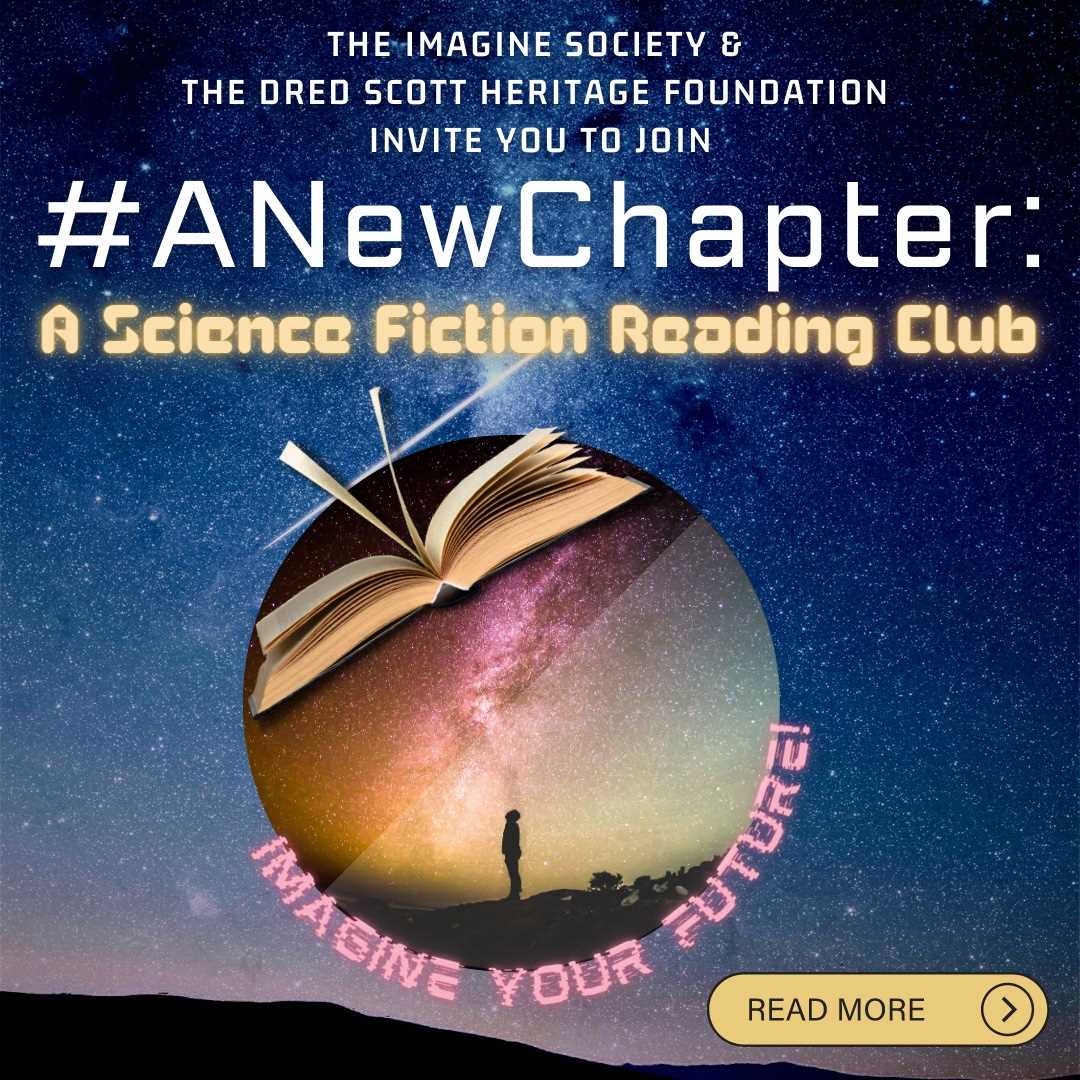
Winston’s journey throughout the novel reveals a profound transformation shaped by his internal conflict, desires for freedom, and eventual surrender to the oppressive system around him. As the protagonist, his evolution reflects both the resilience and the crushing limitations of the human spirit under totalitarian control. His development can be traced through key moments of rebellion, despair, and ultimately, submission.
At the beginning, Winston is portrayed as a disillusioned and isolated individual, quietly defying the regime in his mind. His thoughts of resistance, however, remain abstract and disconnected from any real action. Over time, he begins to take tangible steps toward breaking free from the Party’s control:
- Private Rebellion: Winston starts by secretly writing in a journal, an act that symbolizes his desire for personal expression and rebellion against the state.
- Romantic Rebellion: His relationship with Julia is a pivotal moment in his character arc, where he experiences human connection outside the constraints of the Party.
- Intellectual Rebellion: Winston seeks to understand the past and the true nature of the regime, engaging in discussions with O’Brien about the Party’s manipulation of truth.
However, Winston’s development takes a tragic turn as he faces the unrelenting power of the state. His resistance is ultimately broken by the Party’s psychological tactics:
- Torture and Betrayal: In the Ministry of Love, Winston undergoes physical and mental torture, culminating in his betrayal of Julia under extreme duress.
- Loss of Individuality: Through intense interrogation and brainwashing, Winston’s sense of self begins to disintegrate as he is forced to accept the Party’s version of reality.
- Final Submission: In the end, Winston’s transformation is complete when he wholeheartedly accepts the Party’s control, even professing his love for Big Brother.
Winston’s development illustrates the overwhelming power of the regime to not only suppress external rebellion but to dismantle the very foundation of personal thought and belief. His character arc serves as a chilling reminder of how totalitarian systems can dehumanize and break even the most determined individuals. Ultimately, Winston’s journey emphasizes the fragility of human autonomy in the face of absolute control.
The Role of Big Brother in Society
Big Brother functions as both a symbol of authority and an actual figurehead of the totalitarian regime in the story. Although his true existence is questioned, his presence looms large over every aspect of the society, representing the Party’s absolute control over individuals’ lives. His image is omnipresent, from posters to telescreens, ensuring that citizens are constantly reminded of his surveillance and power.
Omnipresent Surveillance is one of Big Brother’s most significant roles. His watchful eyes, symbolized by the ubiquitous posters with the slogan “Big Brother is watching you,” serve as a constant reminder of the state’s ability to monitor and control every action, even thoughts. This omnipresence creates a sense of fear and obedience, ensuring that citizens act in ways that align with the Party’s expectations, even when they are alone.
Psychological Manipulation is another critical aspect of Big Brother’s influence. He represents not only physical control but also the Party’s power to shape and manipulate the minds of the population. By creating an environment of uncertainty and fear, Big Brother fosters loyalty to the regime, making individuals believe that their only source of protection and security lies in unwavering allegiance to the Party.
Symbol of Unity and Order is also a role that Big Brother plays. Though he may not directly govern the population, his image unites the citizens under a common, unquestioned authority. The slogan “Freedom is Slavery” demonstrates how the Party, through Big Brother’s figure, redefines societal concepts to maintain unity and control. People are led to believe that any resistance or desire for change is an act of betrayal against the collective good, reinforcing conformity.
In essence, Big Brother is both the face of the regime and a tool for sustaining its dominance. His presence serves not just as a constant physical reminder of surveillance but as a deeper psychological force that controls the thoughts, beliefs, and actions of the citizens. By invoking loyalty and fear, Big Brother helps perpetuate a world where individualism is crushed, and the state remains all-powerful.
Exploring the Concept of Doublethink
Doublethink is a crucial psychological concept used by the totalitarian regime to control and manipulate the minds of its citizens. It refers to the ability to simultaneously accept two contradictory beliefs as true, creating a reality where logical consistency no longer holds. This manipulation allows the government to maintain power by subverting the very nature of truth and reason.
Fundamentals of Doublethink involve the deliberate suspension of logic and reason. Citizens are trained to accept opposing ideas without question, such as believing that war is peace or freedom is slavery. This contradiction is not seen as a flaw but as a necessary component of the regime’s control. By controlling what people can think, the Party eliminates the potential for rebellion or dissent.
The Role of Language in Doublethink is integral to the process. The Party’s invention of Newspeak, a language designed to eliminate unorthodox thoughts, enhances the practice of doublethink. By removing words that could describe rebellious ideas or concepts of freedom, the regime makes it increasingly difficult for individuals to think critically or express dissenting views. This language manipulation helps reinforce the contradictory beliefs that citizens are forced to adopt.
Doublethink in Daily Life ensures that the people constantly accept the Party’s shifting narratives. When the regime alters history or facts, individuals are required to forget the previous version and accept the new one, without confusion or resistance. This mental flexibility enables the government to remain unchallenged, as the population no longer has the capacity to question or remember the past accurately.
Through doublethink, the regime maintains its dominance by eradicating the ability for independent thought. By forcing citizens to live with internal contradictions, the Party effectively breaks down the concept of objective truth, ensuring that the populace remains under its complete control.
Impact of Surveillance on Individual Freedom
Constant surveillance profoundly impacts the autonomy and freedom of individuals by eliminating personal privacy and imposing a sense of omnipresent monitoring. The constant fear of being watched forces individuals to conform to the expectations of the governing authority, ultimately stifling any form of rebellion, creativity, or independent thought. In such an environment, personal freedom becomes severely restricted, as actions and even thoughts are regulated by the ever-watchful eye of the state.
Loss of Privacy
Surveillance systems erode the concept of privacy, making it nearly impossible for individuals to express themselves or make personal choices without fear of reprisal. The presence of monitoring devices in both public and private spaces ensures that every movement, conversation, and action is being observed. This constant scrutiny creates an atmosphere where:
- Personal Freedom is Compromised: Individuals cannot act freely or make decisions without worrying about being reported or punished.
- Fear of Repercussions: The threat of punishment for deviating from prescribed behaviors discourages independent thought and expression.
- Lack of Authenticity: People begin to modify their behavior to avoid detection, leading to inauthentic interactions and relationships.
Psychological Effects of Constant Surveillance
The psychological toll of living under continuous observation is immense. Individuals start to internalize the belief that they are always being watched, even when there is no direct evidence of surveillance. This results in:
- Self-Censorship: The fear of being observed leads to a self-regulated behavior where individuals avoid expressing controversial or personal opinions.
- Internalized Control: Over time, the surveillance system creates a mental state where people begin to conform voluntarily, without needing external pressure.
- Loss of Critical Thinking: Constant monitoring discourages individuals from engaging in independent analysis or questioning the status quo, as doing so could attract unwanted attention.
Surveillance, by its very nature, stifles individual autonomy and freedom. When every action, word, and thought is scrutinized, it becomes nearly impossible for people to live authentically or to pursue their personal desires. The pervasive nature of observation shapes not just the behavior of individuals but also the fabric of society, leading to a culture of compliance, fear, and control.
Connection Between Language and Power
Language serves as a powerful tool that shapes not only how individuals communicate but also how they perceive and understand the world around them. In a society where control is essential, the manipulation of language becomes a central mechanism for maintaining authority. By redefining words, limiting vocabulary, and controlling how ideas are expressed, those in power can influence the thoughts, behaviors, and beliefs of the population.
Manipulation of Language for Control is a fundamental strategy used by regimes to limit free thought and create an environment where opposition is virtually impossible. When language is stripped of its richness and depth, the ability to conceptualize and discuss alternative ideas is greatly reduced. This reduces the likelihood of rebellion and fosters complete obedience to those in charge.
| Technique | Purpose |
|---|---|
| Newspeak | To eliminate words that could potentially convey subversive or rebellious thoughts. |
| Reduction of Vocabulary | To limit the range of thought by reducing the complexity of language. |
| Re-definition of Concepts | To alter the meanings of key terms, making it difficult for individuals to challenge the system. |
Language as a Tool for Obedience works by instilling a narrow understanding of the world. When language is manipulated to favor one narrative, it becomes nearly impossible for individuals to express dissent. For example, the act of rephrasing concepts like freedom or justice into terms that support the ruling authority leads to a population that is unable to critique or envision alternatives. In such a system, the very structure of communication itself becomes an instrument of control.
Ultimately, the connection between language and power highlights how those who control language can also control the thoughts and actions of individuals. By shaping how people think, speak, and express themselves, authority figures maintain their dominance and ensure compliance. Language, in this way, becomes not just a means of communication but a central force in preserving the status quo and preventing the rise of independent or revolutionary ideas.
The Significance of the Telescreens
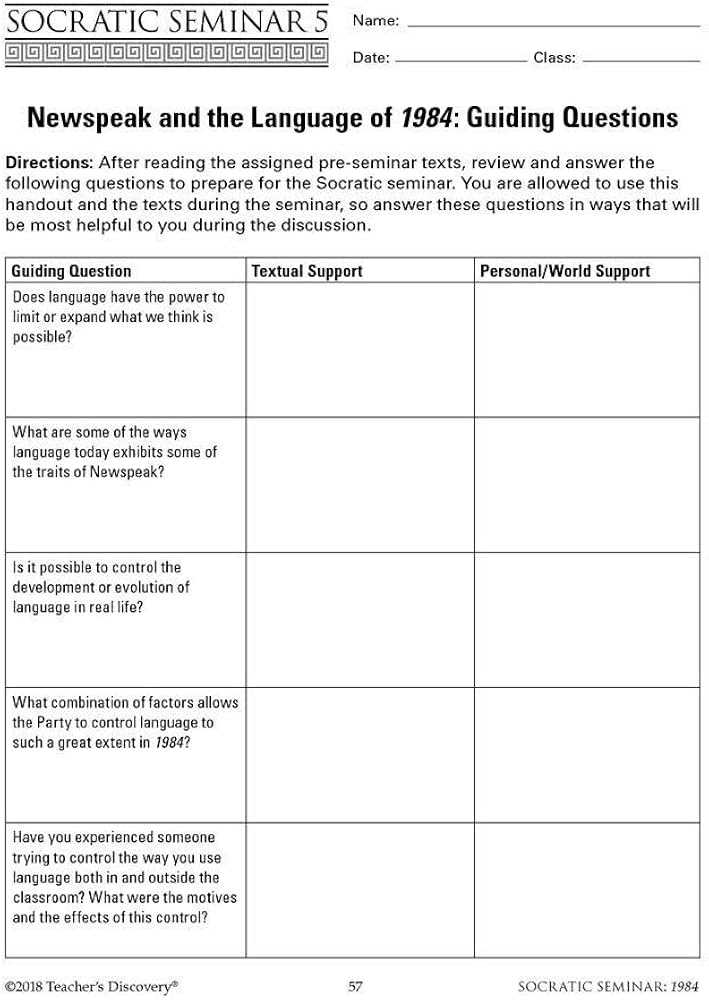
Telescreens play a central role in the control and surveillance mechanisms of a totalitarian regime. These devices, which are constantly present in both public and private spaces, serve not only as a means of communication but also as tools for monitoring the actions and thoughts of the population. The pervasive presence of telescreens reinforces the notion of an omnipresent authority, reminding citizens that they are never truly alone, and every action is subject to observation.
Surveillance and Control
The primary function of telescreens is surveillance. They constantly observe and transmit information about individuals’ behaviors, ensuring that no one can escape the gaze of the ruling authority. This monitoring forces individuals to modify their behavior and reinforces a culture of self-censorship. The presence of telescreens in every corner of life ensures:
- Constant Observation: No private moment goes unnoticed, fostering a sense of being perpetually watched.
- Behavioral Compliance: Knowing that they are being observed, individuals alter their actions to meet the expectations of the regime.
- Psychological Pressure: The fear of being monitored discourages rebellious thoughts and actions, creating a submissive population.
Broadcasting Propaganda
In addition to monitoring, telescreens are also used to broadcast state-approved messages, propaganda, and news. They are one of the most effective tools for disseminating the regime’s narrative and ensuring that citizens only receive the information deemed appropriate by the ruling authority. This aspect of the telescreens reinforces the regime’s power by:
- Shaping Public Opinion: The constant flow of controlled information manipulates the way people perceive reality.
- Reinforcing Ideology: By continuously exposing individuals to propaganda, the regime ensures that citizens remain loyal to its principles.
- Suppressing Dissent: Telescreens are used to spread messages that stifle any form of resistance or alternative viewpoints.
The telescreen, as both a tool of surveillance and a means of communication, exemplifies the mechanisms of control used by the totalitarian regime. By creating an environment where every action is scrutinized and every thought is influenced, these devices serve to eliminate privacy and freedom, ensuring that the authority remains unchallenged.
How Fear Shapes the Party’s Authority
Fear is a powerful force that shapes both the behavior and mindset of individuals within a controlled society. It is systematically cultivated and used by those in power to maintain their authority and prevent any form of rebellion. The fear of punishment, the fear of surveillance, and the fear of betrayal all contribute to a culture where obedience is not only encouraged but demanded. Through these mechanisms, fear becomes a cornerstone in maintaining control over the population.
Psychological Manipulation Through Fear
The Party employs fear as a tool to psychologically manipulate individuals, ensuring that any deviation from the norm is met with immediate consequences. This creates a climate of uncertainty and paranoia, where people become overly cautious about their actions and thoughts. The following factors play a critical role in how fear reinforces control:
- Surveillance: The constant monitoring of citizens through telescreens and other surveillance mechanisms keeps them in a perpetual state of anxiety.
- Threat of Punishment: Harsh punishments, including imprisonment, torture, or even execution, deter any attempt to challenge authority.
- Social Pressure: Individuals fear the repercussions of acting outside the norms, especially the risk of being reported by peers.
The Role of the Thought Police
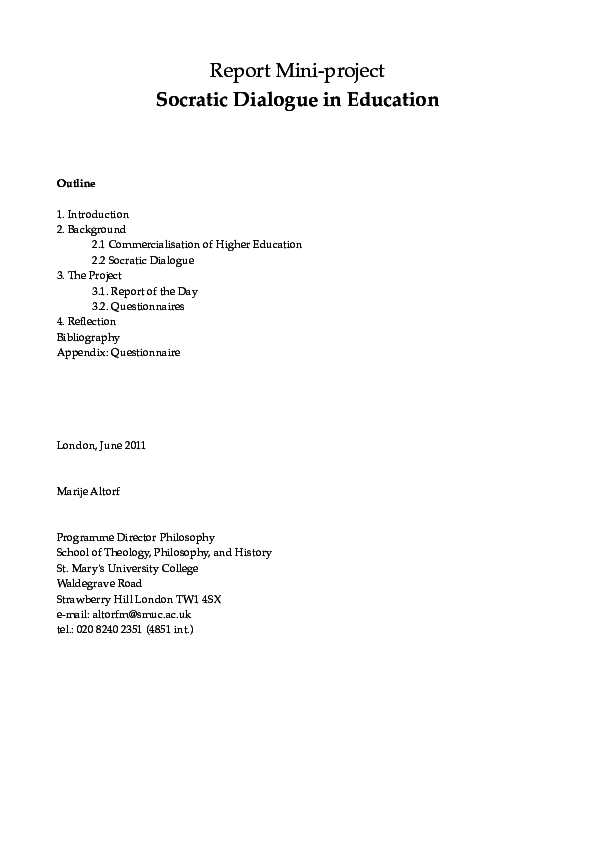
The Thought Police are the embodiment of fear and serve as an extension of the Party’s will. Their sole purpose is to root out dissent, ensuring that no anti-regime sentiment is allowed to spread. The mere idea of the Thought Police instills fear, making people constantly question their own thoughts and those of others. The following table highlights the mechanisms by which the Thought Police enforce control:
| Mechanism | Impact |
|---|---|
| Surveillance | Creates an environment where every action and word is scrutinized, leaving individuals fearful of saying anything that could be deemed subversive. |
| Torture and Re-education | Breaks individuals mentally and physically, forcing them to abandon any rebellious thoughts and accept the Party’s ideology. |
| Manipulation of Reality | Through psychological tactics, individuals are forced to accept the Party’s version of truth, no matter how contradictory it may be to their own experiences. |
In this way, fear is not just a passive force, but an active component in the Party’s ability to maintain control. It shapes the thoughts, actions, and decisions of individuals, ensuring that any potential challenge to the regime is crushed before it can even manifest. Fear becomes the mechanism that reinforces power and perpetuates the authority of those in control.
The Role of History in 1984
In a society where the truth is constantly manipulated, the past plays a crucial role in maintaining control over the present. History is not simply a record of events, but a tool used by the ruling power to shape perception and reality. By altering historical records and controlling access to information, the Party ensures that its narrative remains unchallenged. In this controlled environment, the past becomes a weapon in the ongoing struggle for dominance and obedience.
The Party’s Control Over the Past
One of the most striking features of this society is the systematic rewriting of history. The Party constantly updates records to reflect its evolving agenda, erasing any evidence that contradicts its current ideology. By controlling the past, the Party is able to maintain its grip on the present, ensuring that no alternative viewpoints or ideas can challenge its authority. The following elements illustrate how history is manipulated:
- Continuous Alteration: Historical documents are regularly updated to reflect the Party’s narrative, making it impossible for citizens to trust their own memories or any historical facts.
- Memory Hole: Documents and records that are no longer useful to the Party are disposed of through the “Memory Hole,” ensuring that only the approved history is available.
- Control Over Language: The manipulation of language, through the creation of “Newspeak,” limits the ability of individuals to think critically about the past and present.
Why History is Rewritten
The continuous rewriting of history serves several purposes, all of which are designed to reinforce the Party’s absolute power. By altering or erasing past events, the Party creates an illusion of infallibility and permanence. The following points explain why the Party needs to control history:
- Establishing Authority: The Party uses historical revisionism to create a narrative where it has always been in power, making any challenges to its rule seem impossible.
- Preventing Rebellion: By controlling the past, the Party ensures that citizens cannot learn from previous mistakes or revolutions, preventing the emergence of any revolutionary ideas.
- Limiting Critical Thought: With history constantly rewritten, citizens are unable to critically analyze past events or form independent thoughts about their present situation.
Through these mechanisms, the Party ensures that history remains malleable and under its control, thus securing its hold on power. In such a society, the past no longer serves as a guide or a lesson, but as a tool for maintaining domination.
The Ethics of Rebellion Against Oppression
The question of whether it is morally justified to resist an oppressive regime is one that has been debated for centuries. In societies where freedom is restricted, the act of rebellion can be seen as a fight for justice and human dignity, yet it also raises significant ethical concerns. When individuals or groups rise up against those in power, they must weigh the consequences of their actions, both for themselves and for the greater good. The ethics of rebellion lie at the intersection of personal sacrifice, collective well-being, and the right to self-determination.
The Moral Justification for Resistance
Rebellion against tyranny is often justified by the idea that individuals have an inherent right to freedom, autonomy, and self-expression. When a government or ruling power systematically deprives its citizens of these rights, resistance becomes a means of reclaiming personal dignity and justice. Several key factors make the moral case for rebellion:
- Protection of Basic Rights: When fundamental human rights are violated, rebellion can be seen as a necessary act to restore those rights and protect vulnerable individuals from harm.
- Opposition to Unjust Laws: When laws are created to oppress rather than protect, resisting those laws can be viewed as a moral obligation to challenge injustice.
- Fighting for Future Generations: Rebellion can serve as an effort to create a better society for future generations, ensuring they inherit a world of freedom and equality.
The Ethical Dilemmas of Rebellion

Despite the moral justification for resistance, the act of rebellion carries ethical complexities. In the face of overwhelming power, the means used in a rebellion may often result in violence, suffering, and unintended consequences. These concerns present several ethical dilemmas that must be carefully considered:
- Violence and Harm: Rebellions often involve violence, which can lead to the loss of innocent lives and long-term societal damage. The use of force raises the question of whether the ends justify the means.
- Collateral Damage: Resistance movements can sometimes cause harm to the very people they aim to protect, whether through economic disruption or the targeting of civilian infrastructure.
- Risk of Failure: Rebellions may not always succeed, and when they fail, they can result in even harsher repression, making the ethical calculus of rebellion more complex.
In any situation, the decision to rebel requires careful reflection on both the potential benefits and the risks involved. While resistance can lead to a freer and more just society, it must be undertaken with a clear understanding of the moral costs and the ethical responsibility for those harmed in the process.
Symbolism of the Paperweight in 1984
The paperweight in the story serves as a powerful symbol of resistance and the fragility of human freedom. It represents a moment of personal autonomy in a society where the ruling power seeks to control every aspect of life. As an object, the paperweight holds a sense of nostalgia, drawing attention to a time before totalitarian control. However, it is also a reminder of how delicate the individual’s connection to the past, truth, and personal identity is under such oppressive forces.
The paperweight’s aesthetic value contrasts sharply with the utilitarian and oppressive world surrounding it. Its beauty and unique design stand as a symbol of individuality, a stark contrast to the uniformity demanded by the regime. This object, though small and seemingly insignificant, embodies Winston’s desire to reclaim a sense of meaning and autonomy in his life. It is a tangible representation of his rebellion against the constraints of the Party, offering a brief moment of escape from the harsh realities of his environment.
In its eventual destruction, the paperweight also symbolizes the crushing of personal freedom and the inevitable triumph of the totalitarian forces. The act of breaking the paperweight parallels Winston’s own eventual downfall, showing how easily the system can dismantle even the most intimate forms of resistance. This destruction not only signifies the loss of personal autonomy but also the eradication of any hope for change or escape from the Party’s grasp.
Thought Crime and Its Consequences
In the controlled society described, the concept of “thought crime” is one of the most dangerous offenses an individual can commit. It refers to the mere act of harboring thoughts that go against the ruling ideology, even if no outward action is taken. The regime’s ability to monitor and manipulate thoughts represents the ultimate form of control, where the very nature of personal freedom is infringed upon. This phenomenon highlights the regime’s power to not only govern actions but to dictate and suppress individual thought processes.
The Nature of Thought Crime
Thought crime is a deeply unsettling concept, as it suggests that personal beliefs and internal reflections are subject to punishment. In this society, the mere suspicion that a person may be entertaining rebellious or subversive thoughts is enough to justify surveillance, arrest, and punishment. The idea that individuals cannot trust their own minds reveals how deeply the state seeks to control every aspect of life, ensuring total compliance even in the most private areas of existence.
The Punishments and Repercussions
The consequences of committing a thought crime are severe and far-reaching. Individuals are not only punished for their internal dissent but are also forced to betray their own sense of identity and morality. The repercussions include imprisonment, torture, and even the complete erasure of a person’s existence, as their memories are rewritten and manipulated. This process of dehumanization ensures that those who challenge the status quo are completely broken, their will crushed, and their ability to resist utterly destroyed.
How Propaganda Influences Public Perception
Propaganda is a powerful tool used to shape public opinion and influence the masses. By manipulating information and presenting biased or misleading narratives, it can control how individuals perceive their reality. This manipulation does not only target facts but also seeks to shape emotions, beliefs, and attitudes, thereby directing the actions and thoughts of entire populations. The primary goal of such tactics is to maintain control by creating a uniform worldview that aligns with the interests of those in power.
Techniques of Manipulation
Various methods are employed to alter perceptions through propaganda. These techniques include:
- Repetition: Repeating certain slogans or ideas constantly, making them seem self-evident or universally accepted.
- Disinformation: Providing false or altered information to confuse or mislead the public.
- Emotional Appeals: Using fear, love, or anger to manipulate public sentiment and prompt action based on feelings rather than facts.
- Black-and-white Thinking: Presenting complex issues as simple dichotomies–good versus evil, us versus them–thus limiting critical thought.
Impact on Individual Beliefs
Through the relentless spread of carefully crafted messages, propaganda not only distorts reality but also erodes the ability to think critically. Over time, individuals may begin to accept these manipulated truths as their own, further entrenching the power of the ruling authority. By controlling the flow of information, propaganda ensures that alternative viewpoints are suppressed, leaving little room for independent thought or dissent.
The Dystopian Nature of Oceania
Oceania represents a totalitarian society where the individual is subjugated by an overwhelming and omnipresent government. In this oppressive environment, personal freedom is restricted, and conformity is enforced through constant surveillance, propaganda, and manipulation of reality. The government, known as “the Party,” controls every aspect of life, from thoughts to actions, creating a world where even basic truths are altered to maintain control.
The society of Oceania is built on the idea that power is not only exercised over actions but also over minds. The people are constantly exposed to contradictions, where history is rewritten, facts are twisted, and the very language itself is reshaped to limit the scope of thought. In such an environment, resistance becomes nearly impossible, as even the desire to rebel is suppressed through fear and indoctrination.
Surveillance and Control
One of the defining features of Oceania is its system of ubiquitous surveillance. The government monitors its citizens at all times, using technology such as telescreens and hidden microphones to observe and control behavior. The concept of “Big Brother,” the symbolic figurehead of the Party, embodies this constant watchfulness, ensuring that no one escapes the all-seeing eye of the regime.
Rewriting of History
In Oceania, the past is not fixed but continuously rewritten to serve the needs of the Party. By altering records, erasing individuals from existence, and manipulating public perception, the regime ensures that its authority is never questioned. History becomes a fluid construct, controlled entirely by those in power, making it impossible for the citizens to trust their memories or understand the truth of past events.
Ultimately, the dystopian nature of Oceania lies in its ability to crush any form of dissent or independent thought, creating a society where individuals are both physically and mentally enslaved by the Party’s relentless control over every aspect of life.
Parallels Between a Totalitarian Regime and Modern Society
While the world depicted in the novel features extreme forms of control and surveillance, the mechanisms of manipulation and power explored in the story resonate strongly with elements of contemporary life. Various aspects of modern society reflect the themes of authority, surveillance, and information control that are central to a totalitarian state. Though the tools and methods may have evolved, the underlying patterns of societal control remain remarkably similar.
Surveillance and Privacy
- Ubiquitous monitoring: In the fictional society, citizens are constantly watched by telescreens and cameras. Similarly, in today’s world, advancements in technology, such as smartphones, social media, and surveillance cameras, enable governments and corporations to monitor individuals on an unprecedented scale.
- Data collection: Modern corporations and governments collect vast amounts of personal data, often without the knowledge or consent of individuals, to tailor advertisements or even influence political decisions, mirroring the surveillance tactics used by the Party to control behavior.
Manipulation of Information

- Control of narratives: Just as history is constantly rewritten to maintain the power of the ruling party in the fictional society, modern media outlets and political figures sometimes spin information to fit their agendas, presenting biased or incomplete truths to the public.
- Spread of misinformation: The concept of “doublethink” in the novel, where contradictory beliefs are accepted simultaneously, can be seen in the proliferation of conflicting information in the media. Individuals may encounter various viewpoints, many of which are purposely designed to confuse or manipulate the public’s perception of truth.
Loss of Individuality
- Social conformity: In the fictional world, individuals are encouraged to suppress personal desires and align with collective ideologies. In modern society, peer pressure, social media trends, and mass consumer culture often push individuals toward conformity, with little room for divergence from the established norms.
- Consumerism: The pressure to conform is also evident in the relentless pursuit of consumer goods and lifestyle trends, which can be seen as a modern parallel to the Party’s creation of a constant sense of dissatisfaction and need for control over personal aspirations.
Although the levels of oppression and the consequences of dissent may not be as severe in modern society as in the fictional world, the similarities in how control is exerted over individuals–through surveillance, the manipulation of information, and the suppression of dissent–serve as a warning. The struggle for personal autonomy and the search for truth are timeless, and the comparison between the two highlights the importance of vigilance in maintaining individual freedoms.